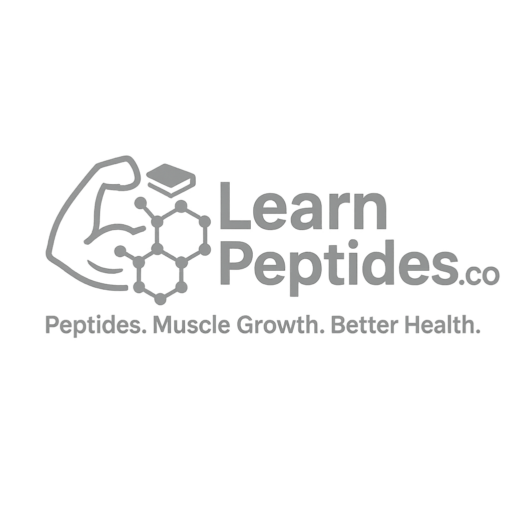
Achieve Enhanced Healing: The Power of Peptides Recovery
Understanding Peptides Recovery for Enhanced Health and Wellness
Peptides recovery is transforming how professionals approach health and wellness. This article outlines key details about the science behind peptides recovery and its practical benefits. It explains the role of peptides in accelerating physical recuperation and clarifies the safety measures needed to integrate them into a recovery regimen. The content addresses challenges in achieving consistent recovery results and offers clear strategies to overcome them.
Understanding Peptides and Their Role in Recovery
Peptides are small chains of amino acids vital for cell communication, playing significant roles in recovery. The discussion covers their biological functions including managing dose effects on blood pressure and blood flow. It also differentiates between peptides and proteins, with crossref insights to clarify these distinctions for enhanced health and wellness.
Defining Peptides and Their Biological Functions
The PR Builder explains that peptides consist of short chains of amino acids that facilitate communication between cells, influencing metabolism and recovery processes. Their structure allows them to interact with various receptors, similar to sermorelin, promoting beneficial effects while keeping potential side effect risks low when administered properly.
Expert analysis shows that peptides also support tendon repair and overall tissue recovery by enhancing cell signaling. Their precise activity in regulating metabolism contributes to improved wellness, making them an important element in recovery strategies for enhanced health outcomes.
Differentiating Between Peptides and Proteins
The differentiation between peptides and proteins emphasizes their unique roles in therapy and recovery, where peptides typically exhibit greater efficacy in targeted cell signaling. Clinical trials have demonstrated that peptides stimulate precise receptor activity by using specific acid sequences, thereby impacting brain functions and facilitating rapid recovery processes. For more detailed insights on the comparison, you can explore peptides vs proteins.
Proteins, being larger and more complex, form the structural foundation of cells and tissues, while peptides act as concise messengers in metabolic regulation. Experts note that this distinction is crucial in clinical trials focused on therapy, as peptides deliver benefits efficiently without the extensive molecular size associated with full proteins.
The Science Behind Peptides Recovery
This section outlines muscle repair mechanisms, emphasizing the role of peptides in growth. It details how peptides affect blood vessel function, modulate gland activity, and optimize pharmacokinetics for healing. The discussion also covers their impact on inflammation and recovery time, providing clear insights into muscle repair and overall recovery processes.
Mechanisms of Action in Muscle Repair and Growth
Peptides contribute to muscle repair and growth by enhancing cellular communication in skeletal muscle tissues and improving fibroblast response after surgery. Their effect supports recovery from sprain injuries while optimizing cell regulation and reducing fat deposition in affected areas.
Peptides demonstrate precise activity in accelerating healing processes by promoting efficient protein synthesis and modulating inflammation in skeletal muscle. This targeted approach benefits patients recovering from surgery and managing sprain-induced damage, reinforcing maintenance of muscle strength and overall wellness.
The Impact of Peptides on Inflammation and Recovery Time
Research indicates that peptides reduce inflammation and speed recovery time by enhancing cell growth and supporting optimal body composition. Clinical data support that peptides optimize bioavailability, allowing for improved angiogenesis and a faster healing process.
Medical professionals observe that targeted peptide therapy modulates inflammatory responses, which contributes to efficient cell growth and recovery. The analysis of data shows favorable effects on body composition and angiogenesis, underlining the practical benefits of peptides in reducing recovery time.
Types of Peptides Used for Recovery
This section outlines Growth Hormone-Releasing peptides for improved muscle recovery, collagen peptides aimed at joint health, and recovery-enhancing peptides that support athletes. Each focuses on medicine applications such as wound healing, injury recovery, libido balance, and gastrointestinal tract support, offering practical insights for enhanced health and wellness.
Growth Hormone-Releasing Peptides
Growth Hormone-Releasing Peptides assist in recovery by improving muscle repair while supporting the innate immune system, ensuring that health care practices remain effective. Clinical studies approved by the food and drug administration indicate that such peptides enhance the role of nicotinamide adenine dinucleotide in energy processes and contribute to the strengthening of a ligament during healing procedures.
The utilization of these peptides in health care has shown promising results in optimizing overall recovery time and muscle function. Their precise application has proven beneficial in environments where tissue repair and ligament resilience are critical, demonstrating practical effectiveness backed by current research evaluations.
Collagen Peptides for Joint Health
Collagen peptides play a significant role in joint health by supporting the structural integrity of connective tissues, which helps maintain optimal health. Analysts note that when combined with creatine supplements, these peptides can further assist in stabilizing the liver’s metabolic functions, contributing to overall well-being and a balanced mood.
Research confirms that collagen peptides offer benefits that extend to improved joint comfort and reduced recovery time, which can positively affect the stomach’s digestive processes. Experts also remark that integrating these peptides into a recovery regimen supports healthy relationships between muscle repair and mood stabilization, ensuring an efficient recovery from physical stress.
Recovery-Enhancing Peptides for Athletes
The PR Builder emphasizes the use of recovery-enhancing peptides among athletes to support muscle repair and improve overall performance. This targeted approach integrates essential nutrient supplementation and is aligned with findings from a systematic review, addressing issues faced by patients with type 2 diabetes and similar metabolic concerns.
Industry experts note that athletes benefit from peptides that promote faster healing and reduced recovery time, with some formulations incorporating gelatin to improve joint integrity. These peptides provide a practical solution for ensuring efficient recovery while supporting optimal body function, as seen in clinical evaluations involving diverse patient populations.
Benefits of Peptides Recovery for Health and Wellness
Peptides recovery supports enhanced muscle recovery post-exercise and robust immune function. The role of peptide hormone action in muscle hypertrophy and precise cell signaling is showcased by evidence from semaglutide and pubmed resources. Subsequent sections detail approaches to optimize these processes, providing practical insights for overall health and wellness.
Enhancing Muscle Recovery Post-Exercise
The PR Builder highlights peptide recovery as a strategic method to boost regeneration and maintain high energy levels after strenuous exercise, thus promoting robust muscle repair. Clinical insights reveal that targeted nutrition and peptide therapy contribute to an optimized immune system response, supporting efficient healing and abstract recovery improvements for active individuals.
Research-backed evidence indicates that peptide recovery accelerates muscle regeneration and restores energy reserves following rigorous physical activity. Health professionals emphasize that combining peptide-based nutrition with a balanced regimen enhances the immune system to deliver practical benefits in a streamlined, abstract recovery approach.
Supporting Immune Function and Overall Health
The PR Builder highlights that effective peptide recovery can support the immune system by improving signal transduction, which is crucial when addressing conditions such as psoriatic arthritis. Clinical evaluations show that peptides, in combination with growth hormone, work at room temperature to optimize cell communication, providing tangible benefits over the use of a placebo in controlled settings.
Scientific analysis demonstrates that peptide recovery protocols enhance immune function and overall health by leveraging precise signal transduction. Experts observe that the integration of growth hormone with peptide therapy offers a practical solution for managing inflammation and cellular repair, ultimately contributing to improved outcomes compared to a placebo and other standard approaches.
Safety and Considerations in Peptides Recovery
Regulatory guidelines for peptide use are outlined, addressing issues like extracellular matrix integrity, pituitary gland impacts, and insulin resistance. The discussion offers practical advice to mitigate potential side effects and details glycine supplementation benefits. A comprehensive pdf supports these insights, ensuring informed decision-making in peptide recovery strategies.
Understanding Regulatory Guidelines for Peptide Use
Industry specialists note that clear regulation on peptide use is crucial for ensuring safety and minimizing risks such as hormonal imbalances and insulin resistance linked to sugar levels. Strict guidelines help maintain the integrity of peptide recovery protocols, providing professionals with a promise of reliable outcomes for physical fitness and improved skin health.
Experts stress that adherence to regulatory guidelines fosters an environment of accountability within peptide recovery strategies, ensuring that users experience practical benefits without unexpected side effects. Hands-on research supports these measures, confirming that following approved standards not only supports physical fitness but also protects the overall promise of enhanced wellness and skin vitality.
Potential Side Effects and How to Mitigate Them
Experts point out that certain peptides may induce subtle hormone fluctuations, which can affect sleep quality and overall recovery, making it critical to monitor responses during exercise regimens. They recommend consulting with professionals if there is any indication of discomfort, such as changes in skin elasticity or other unexpected symptoms exceeding those associated with tirzepatide use.
Practitioners advise close monitoring of individual reactions to peptide administration to manage minor side effects effectively, emphasizing a balanced approach to sleep, exercise, and overall wellness. They note that adjusting the dosage or treatment schedule can help mitigate occurrences of adverse effects, ensuring that patients safely benefit from
.
How to Incorporate Peptides Into Your Recovery Regimen
Consultation with healthcare professionals is vital for incorporating peptides into recovery regimens. Evaluating quality peptide supplements involves reviewing vitamin content, in vivo research, weight management factors, rat model data, and drug efficacy. These insights guide safe usage while supporting effective recovery strategies.
Consultation With Healthcare Professionals
Consultation with a qualified physician is a critical step when adding peptides to a muscle recovery regimen, ensuring that each amino acid supplement aligns with individual bone health and overall wellness goals. This approach addresses common concerns such as managing a headache during recovery while offering firsthand expertise from professionals who have guided many patients through effective peptide strategies.
A knowledgeable physician can design a tailored protocol that includes careful monitoring of muscle performance and bone integrity, ensuring that the amino acid profile supports recovery without causing adverse effects. This personalized consultation helps patients overcome issues like intermittent headaches while providing clear, actionable insights for successful peptide integration into their recovery regimen.
Choosing Quality Peptide Supplements
The selection of quality peptide supplements is integral to a well-rounded recovery regimen, allowing professionals to address key aspects of muscle contraction and tissue repair. Utilizing options that serve as growth hormone secretagogue aids in optimizing receptor activation, which supports enhanced endurance and effective physical therapy outcomes.
A thorough evaluation of these supplements ensures that each formulation meets stringent criteria for purity and efficacy, providing tangible benefits for optimal muscle function and recovery. Trusted suppliers and clinical feedback help guide choices that encourage consistent progress in physical therapy and overall wellness enhancements.
Conclusion
Peptide recovery plays a critical role in improving muscle repair and overall cell communication. It supports targeted healing and optimizes body composition while aiding athletes and everyday individuals alike. The integration of peptide therapies accelerates healing processes and helps maintain robust immune function. Professionals encourage a thoughtful approach to peptide use that emphasizes safety and measurable health improvements.
Disclosure: The content provided in this article is for informational and educational purposes only and does not constitute medical advice. Always consult with a qualified healthcare professional before making decisions about your health or the use of peptides. This post may contain affiliate links, which means we may earn a commission if you click through and make a purchase, at no additional cost to you. Learn more in our Privacy Policy and Terms & Conditions.




